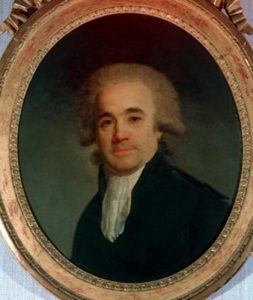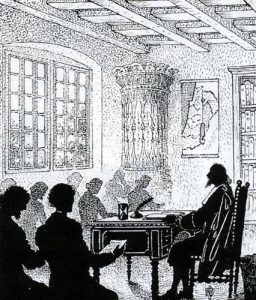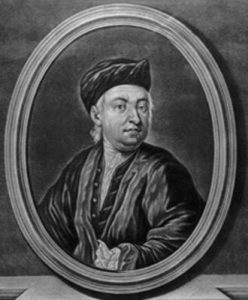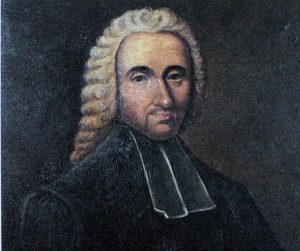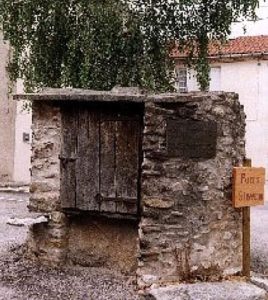Fighting for a legal recognition
As early as the end of the 1760’s, demands were being made for a legal recognition of non-Catholics. The most pressing dispute was that of civil status, in particular invalidity of marriages not celebrated in church.
In 1785, La Fayette, who was back from the American War of Independence, protested in favour of the “emancipation” of the French Protestants. He got in touch with the new superintendent of the “Churches of the Desert”, Pastor Rabaut Saint-Etienne who, through La Fayette, met the government Minister Malesherbes, the latter being well-known for his views in favour of a civil marriage for Protestants.
Putting an end to the ostracism of OR denial of rights to Protestants
An edict was signed by Louis XVI in November 1787. It was based on several papers/statements/tracts/pamphlets (actually translates as “memos”, but one of my suggestions would be better here, one of which was written by Malesherbes himself, and only dealt with the civil status of those who “do not embrace the Catholic faith” : a non-religious wedding was allowed with mere notification before a king’s judge or the priest of the local parish, serving as registrar. Births and deaths were registered in the same fashion.
Most Protestants responded favourably to the edict and a lot of them went before a judge to legalize their “Churches of the Desert” unions, or register the birth of children. – the French actually says “Births and deaths were registered in the same way”
The Edict limitations
The Parliament registered the Edict on January 29th, 1788, but made it clear that Catholicism remained the country’s official religion.
However, non-Catholics were still denied positions in public service and the teaching profession. Protestants were finally allowed into civilian and military jobs with the constitutional document of December 24th, 1789.
They were granted freedom of conscience during the Revolution with the Declaration of Human Rights, and religious freedom with the constitutional document of September 3rd, 1791.

